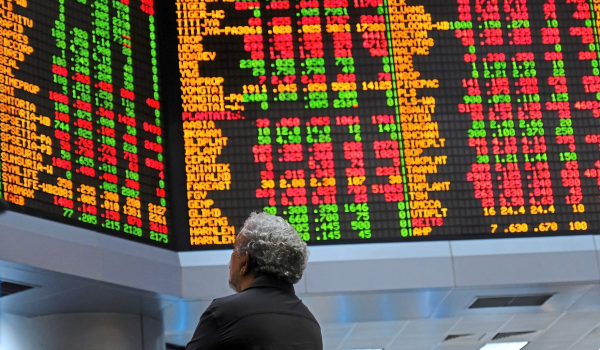By Devanesan Evanson
THE divided opinions between FGV Holdings Bhd’s five non-interested directors and independent adviser (IA), RHB Investment Bank, in relation to the unconditional mandatory take-over offer of FGV by the Federal Land Development Authority (Felda), only points to one mundane truth.
At the end of the day, it is a matter of every man (shareholder) for himself or to be more subtle – in the words of renowned personal finance author Robert T. Kiyosaki – “You and only you are responsible for your life choices and decisions”.
To re-cap, five of FGV’s non-interested directors have recommended shareholders to reject Felda’s offer while expressing their non-concurrence with regard to the IA’s opinion to accept the offer.
For the record, RHB Investment Bank Bhd was appointed as the IA to advise the non-interested directors and holders of FGV on the “fairness and reasonableness” of the Felda takeover offer.
In RHB Investment Bank’s view, the offer is “not fair but reasonable”. It said the offer was not fair as the offer price of RM1.30/share is lower and represents a discount of between 12 sen (8.5%) and 30 sen (18.8%) over the range of estimated value per FGV share derived using the sum-of-parts valuation method of between RM1.42 and RM1.60.
Nevertheless, the IA still deemed Felda’s offer as “reasonable” on grounds which included the fact that FGV has not received any alternative proposals while Felda and the persons acting in concert have chalked up a shareholding of 54.09% (as of Jan 15), “which provides them control over matters and are able to determine the outcome of resolutions sought at general meetings of FGV”.
“Felda does not intend to maintain the listing status of FGV and should Felda be successful, the (share)holders will not be able to trade the securities of FGV on the Main Market of Bursa Malaysia Securities Bhd,” justified RHB Investment Bank.
The IA added: “Further, when Felda accumulates a higher shareholding level as a result of valid acceptances and/or further acquisitions, the liquidity of FGV shares may be constrained.”
Counter-argument
Meanwhile, the non-interested FGV directors argued that firstly, the offer price of RM1.30 per share is not fair as the offer price is below the fair value per FGV share estimated by the IA, which ranged from RM1.42 to RM1.60 per share or 8.5% to 18.8% below FGV’s fair value.
Secondly, the management of FGV had since 2019 implemented a transformation programme (Business Plan 2019-2021) focusing on operational improvements and strengthening the governance and accountability in line with FGV’s status as a public listed company (PLC).
Thirdly, keeping FGV as a PLC will ensure the transparency and timely disclosures of FGV, one of the largest plantation companies in the world in terms of crude palm oil (CPO) production, and a company of significant public interest and impact on the corporate world of Malaysia.
FGV produced over three million metric tonnes of CPO in 2019, being approximately 15.5% of Malaysia’s production and 4.1% of the world’s total production.
Fourthly, debuted at the IPO price of RM4.55/share and now being offered to be acquired at RM1.30/share – and taking into consideration of the significant improvement on the quality of plantation assets since IPO (eg improvement in the age profile of trees via aggressive replanting effort), the “non-interested directors are unable to, with clear conscience recommend the offer as reasonable to the minority shareholders of FGV, which also include settlers and employees of Felda and FGV respectively”.
Opinions are subjective
Putra Business School’s Business Development senior lecturer and manager Prof Dr Ahmed Razman Abdul Latiff summed up Felda’s position rightly by opining that it remains to be seen whether the agency will be able to turnaround both entities (FGV and Felda) once the takeover is completed.
“When political consideration is part of its strategic turnaround, the concern is whether there will be another financial bailout by the Government at the expense of Malaysian taxpayers if things do not go as planned,” he told national news agency Bernama.
Against such a backdrop, nobody can claim to have correctly advised FGV shareholders on what their next cause of action should be.
While shareholders are encouraged to better comprehend the details of both the IA circular and/or rationale put forth by the non-interested directors, they should always weigh their decision against the very fact that the market can be irrational, or that even opinions are subjective.
After all, FGV’s stock price had been languishing before moving up on rumours of the Felda takeover – or perhaps buoyed by the surging crude palm oil (CPO) price – and the bandied RM1.30 takeover price tag.
Nobody can guarantee that FGV’s share price will not tank if it is not privatised.
Recall that Felda, which already owned 21.24% equity interest in FGV, had increased its shareholding in the latter to 42.9% on Dec 8 last year by acquiring an additional 13.88% stake from the Retirement Fund Inc (KWAP) (6.1%) and Urusharta Jamaah Sdn Bhd (7.78%) at RM1.30 a share.
Obviously, these large funds thought that it was worth accepting the offer of RM1.30.
On top of its RM605.8 mil acquisition of FGV shares from both KWAP and Urusharta Jamaah, Felda has thus far spent more than RM100 mil purchasing the remaining shares on the open market.
This follows the issuance of an offer document on Jan 12 in relation to its unconditional mandatory takeover offer for all the remaining shares in FGV which it did not own except treasury shares.
According to the agricultural agency, its offer of RM1.30/share will be open for acceptance until 5pm on Feb 2 unless extended or revised.
In all fairness, FGV has been a “bittersweet discovery” for its loyal investors to begin with. One would not be surprised if many long-term investors would regard investing in FGV as “a misadventure”.
FGV was listed at RM4.55 (with a market capitalisation of just below RM17 bil) in 2012 and was touted as the second-largest floatation exercise in the world that year after Facebook. Fast forward nine years and its market capitalisation has shrunk by 72% to RM4.74 bil.
Between that time span alone, the company has been plagued with a slew of legacy issues ranging from funds misappropriation to abuses such as corruption and criminal breach of trust.
Many minority shareholders are still nursing their wounds, having invested at the IPO price, or prices higher than the current Felda’s price of RM1.30.
The ultimate lesson here is that the stock market does not promise a profit – minority shareholders will have to monitor events as they unravel and make timely and informed decisions on their own accord.
At the end of the day, they should base their final decision of accepting or rejecting Felda’s takeover offer based on their respective risk appetites. – Feb 1, 2021









